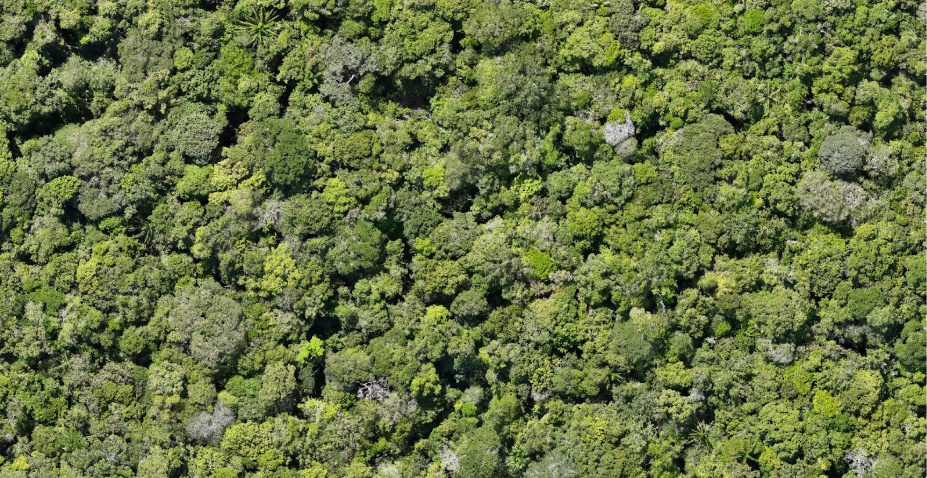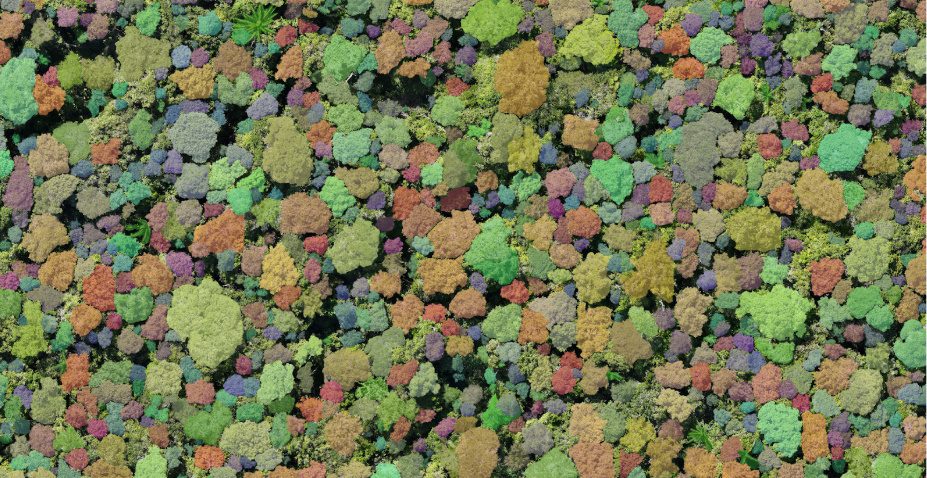News
December 16, 2024
XPRIZE Rainforest: IVADO-supported research revolutionizes tropical forest mapping
Montreal, December 16, 2024 – The research conducted by professors from the Université de Montréal and Polytechnique Montréal, supported by IVADO, played a key role in the victory of the Limelight Rainforest team in the XPRIZE Rainforest international competition held in Brazil in July 2024.
The XPRIZE Rainforest competition aims to promote technological solutions capable of addressing the complex challenges related to the preservation of tropical forests, which are vital ecosystems for global biodiversity and climate regulation. During the competition, the task force within the Limelight Rainforest team, led by Étienne Laliberté, the project’s principal investigator and professor in the Department of Biological Sciences at the Université de Montréal, developed a groundbreaking method to quickly and accurately identify and map canopy trees across vast forested areas.
This groundbreaking project was funded by IVADO through the ‘AI, Biodiversity, and Climate Change’ Strategic Research Funding Program, which allowed the research team to develop new algorithms for mapping plant species and their phenological signatures, building on the latest advances in computer vision and deep learning.


Drones and AI to map the canopy
The mapping solution developed by the team uses drones equipped with high-resolution cameras to capture detailed images of the canopy. These images are then processed with a series of AI algorithms specifically designed for the XPRIZE Rainforest competition, enabling the detection, segmentation of tree crowns, and classification of trees within the upper canopy layer.
“Participating in the XPRIZE Rainforest competition allowed us to push the boundaries of AI applied to monitoring tropical biodiversity,” explains Étienne Laliberté, the project’s principal investigator and professor in the Department of Biological Sciences at the Université de Montréal. “Our solution can map 100 hectares of tropical forest in just a few hours, an achievement that would be impossible with traditional ground-based inventory methods, which are thousands of times slower,” he adds.
The expertise of this task force dedicated to tree mapping using drones and AI, combined with that of a multidisciplinary team of ecologists, Indigenous scientists, and taxonomists, enabled the Limelight Rainforest team to identify more than 250 different species and 700 unique taxa from both the animal and plant kingdoms during the final phase of the competition, based on observations recorded in just 24 hours. They found that all the trees observed in the 100-hectare test area were storing over 3,000 tons of carbon in their trunks and branches.
An innovative technology for the conservation of tropical forests
This new technological breakthrough opens promising prospects for preserving tropical forests, ecosystems essential for global climate regulation and maintaining biodiversity. Indeed, the combined use of AI and drone imaging not only allows for the rapid mapping of biodiversity by identifying tree species over vast areas in record time, but also helps monitor ecological changes by detecting shifts in species composition over time.
Its wide reach and speed make it a valuable tool for promoting sustainable forest management, providing accurate data that facilitates conservation planning, restoration, and the management of forest resources.
“Thanks to this innovation, we can better understand and protect tropical forests, which are crucial for global climate regulation,” says Hugo Baudchon, co-author of the study and lead architect of the developed software solution. He is currently a master’s student under the supervision of Christopher Pal, associate professor in the Department of Computer Science and Operations Research at the Université de Montréal, who also contributed to the project along with other students from his group, including Martin Weiss, a doctoral student at Polytechnique Montréal.
Making the protection of forest resources accessible and adaptable
The Limelight Rainforest project is part of a global effort to improve our understanding of tropical forest ecosystems. “Tropical forests are home to incredible biodiversity, but we still know relatively little about them,” reminds Professor Laliberté. “Our technology will help bridge these gaps and promote conservation.”
But the scope of this cutting-edge project doesn’t stop there: one of the key objectives was to develop a solution that is accessible, usable with consumer-grade equipment, and based on open-source software. “We designed our technology to be easily adopted by research groups, forest managers, and local communities around the world,” emphasizes Antoine Caron-Guay, research professional on Étienne Laliberté’s team and drone pilot during the competition.
“This project demonstrates IVADO’s commitment to supporting cutting-edge research that has a real impact on some of the world’s biggest challenges. We are proud to contribute to innovations that have such a meaningful impact on the preservation of natural environments, and this is just the beginning,” says Luc Vinet, CEO of IVADO. “What’s also fantastic about this project is its accessibility. All of this opens up immense possibilities in tropical regions and beyond”.
Moreover, Étienne Laliberté will travel to Ecuador at the beginning of 2025 to train Indigenous workers in the Amazon who wish to use this technology to map tropical trees and offer their own rapid biodiversity monitoring services.
About this project: The ‘AI, Biodiversity, and Climate Change’ project was launched in 2021 and supported by IVADO as part of its strategic research funding program, with backing from the ‘Canada Research Excellence Fund.’ The principal researchers of the initial project are Étienne Laliberté, Christopher Pal, David Rolnick, Oliver Sonnentag, and Anne Bruneau.